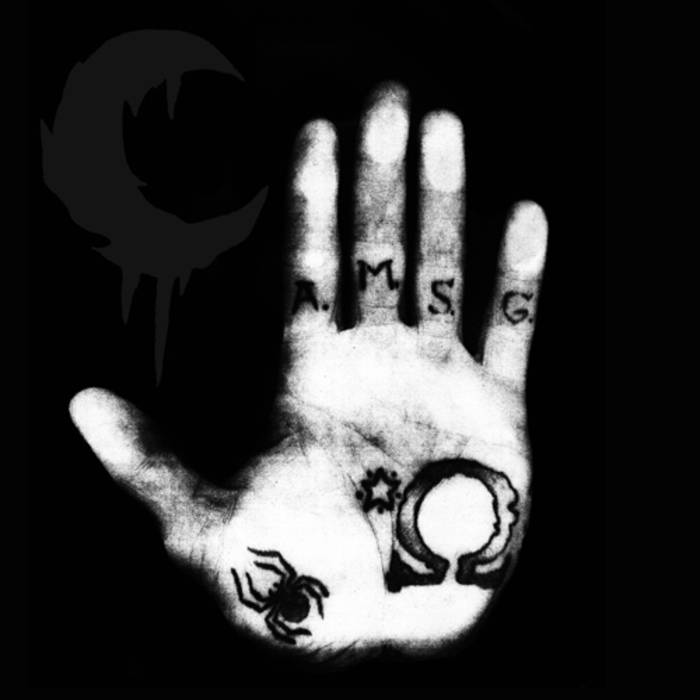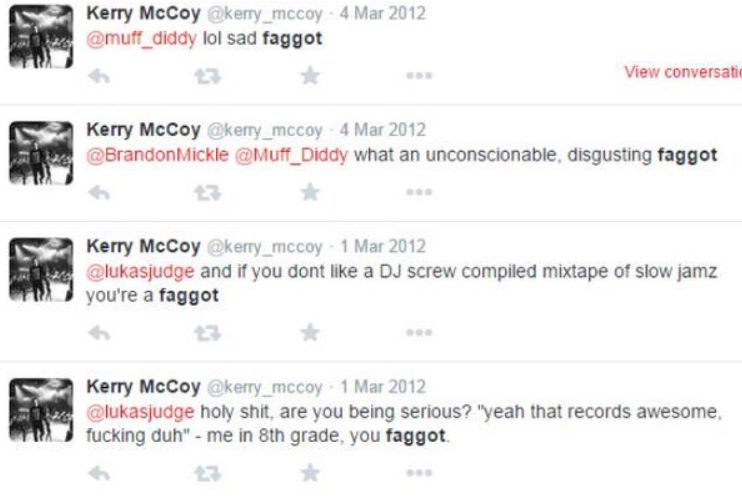If you listen to extreme music, or really are evenly vaguely involved with any form of alternative music, you have most likely heard Deafheaven. Following that same train of thought, you have most likely seen somewhere in the last few weeks the images of Deafheaven guitarist Kerry McCoy using some thoroughly harmful, homophobic slurs. While it is undeniably completely unacceptable for him to have used that negative, hurtful word, it does raise an important issue. As information spreads more quickly nowadays through various media outlets, we get a truly amazing chance to become more aware of what drives and inspires our favorite artists, learning more about them and being able to place ourselves into a far more personal spot within their art.
However, this is not always a positive experience. After all, along with all of the positive insight, such as being able to listen to playlists full of their influences, or just be kept more up to date through social media, we are also exposed to some of the ugliest qualities of those whose music we admire so heavily.
Take, for example, Blake Judd (of Nachtmystium/Twilight), and all of his “shenanigans” involving fake pre-orders and merch that never actually ships. In an age before the internet, surely we could have simply ignored Blake’s misdeeds, as they most likely would have gone unnoticed for a much longer period of time, before finally realizing what he was doing. However, given that we now live in a more modern age, as soon as those pre-orders (that didn’t actually exist) weren’t actually shipping, nor were all of those merch orders, news spread quickly, causing his label to quickly disassociate with him, leaving him completely out to dry.
It is hard to deny that what Judd did was shitty, to say the least, and that he should be punished for it in some way, but is the way to do that by cutting Nachtmystium and Twilight out of your rotation? Both bands have put out phenomenal black metal records, and it seems more of a punishment to the listener to avoid them then to Judd.

However, as polarizing as Judd and his antics may be, it is easy, in this case, to simply acknowledge what he has done and move on, still appreciating Nachtmystium and Twilight for what they are. After all, Judd did not make direct attacks at any anyone, minus a few people being out of some money. Sadly this is not so easy to do with other artists, making it difficult to enjoy knowing that there is ill intent behind it.
Take, for example, Leviathan‘s 2011 album, True Traitor, True Whore (right). While Jeff Whitehead has been churning out hate filled, misanthropic black metal under the moniker since 1998, he never so singularly attacked a group as he did on TTTW. The lyrics were undeniably filled with misogyny, and, to be completely frank, made me and still do make me entirely uncomfortable, leading to me completely avoid the album and continue to enjoy what I believe to be an otherwise nearly flawless discography (even as I’m writing this I’m listening to Scar Sighted). However, Whitehead has also appeared to make significant steps into the direction of cleaning himself up, such as becoming a father, making it a bit easier to digest and forget about a bump in the road like TTTW.
But is it appropriate to do so in order to justify continuing to support an otherwise spectacular discography, or do we continue to dredge up the past and address the overall themes that are derogatory towards women? That is the real question here, especially considering that extreme music is making a much larger push as of late to be a more fully representative and inclusive environment for all; regardless of gender, sexual orientation, or race.
My answer and personal view is that while it would save me a lot of uncomfortable discussion, it is vitally important to discuss albums like True Traitor, True Whore in order to have a more socially aware and accepting metal scene. However, in doing so, I also believe it is important that the artist, such as Jeff Whitehead, is not villainous for recording and releasing an album such as TTTW. After all, people are prone to change over time, learning and growing from their mistakes, ultimately allowing them to be better people. This is where the idea of separating the art from the artist becomes essential. While many may view it as separating quality content from those with truly despicable views who create it, I also believe it applies to separating hurtful, negative albums from people who may have just written them while in a significantly negative place.
I also firmly believe that it is important to acknowledge that musicians, no matter how many mind melting riffs or vocal performances they deliver, are only human, and are subject to making mistakes the same as the rest of us. Theirs, unfortunately, are sometimes recorded and then further distributed by record companies. These mistakes should not be the all we see of them. This is not to say that they should not be discussed though. I again must emphasize how crucially important it is that we do not simply forget the past mistakes of those who we admire and listen to constantly, but acknowledge them for the misdeeds that they were, as well as continue to discuss them without allowing it become our singular view of said musician.

In order to continue to become a more accepting and inclusive music scene, surely we will need to boot some people with less than desirable views (racism, homophobia, transphobia, sexism, etc.). However, that does not mean that we should not be able to enjoy some, in all honesty, fantastic albums made by a few people with such ideas, as long as those albums do not focus on those topics. It would be a shame if we ignored the breath-taking contributions to music Cobalt has made simply due to the less than desirable views of their former vocalist. On a somewhat similar note, it is important to not allow past behavior to completely ruin a band in the present (Kerry McCoy’s tweets) so long as they acknowledge the issue, apologize, and host a healthy dialogue on the subject. Extreme music is becoming a much more socially accepting place, and that should be embraced, but it should not lead to the ignoring of great art simply because despicable people have made it.
-JT